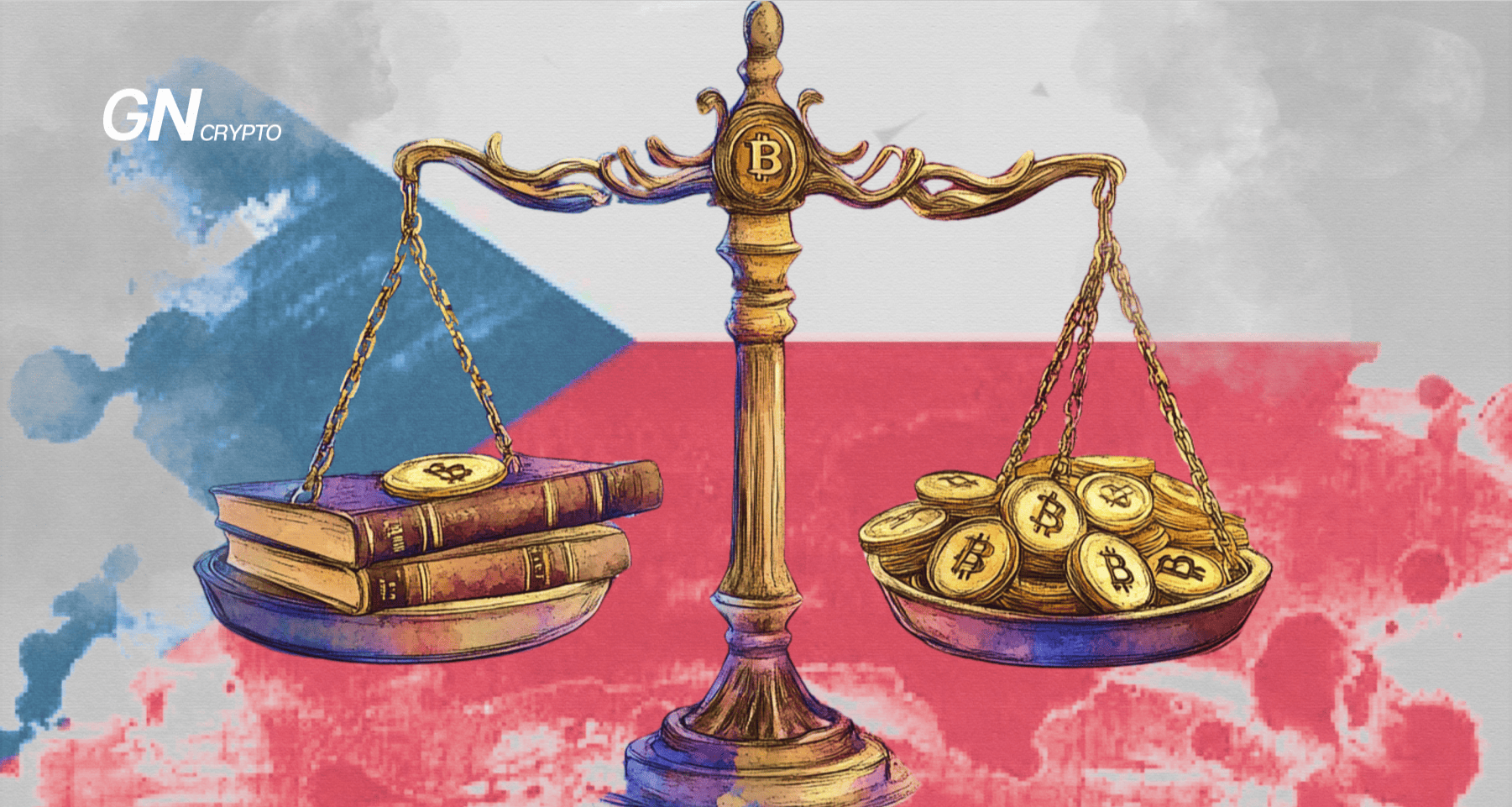The Czech Republic and Its Crypto-Friendly Policies

The Czech Republic is emerging as a crypto-friendly nation, recognizing cryptocurrencies as legitimate payment methods and encouraging their use in business. But its regulatory framework is still taking shape. Here’s how crypto is managed today.
On this page
Cryptocurrencies in the Czech Republic: Current Status
The Czech Republic demonstrates a liberal attitude toward cryptocurrencies. The Czech National Bank (ČNB) does not impose direct limitations, recognizing digital currencies as a legitimate payment option. Nonetheless, the absence of a robust legal framework leaves cryptocurrencies undefined within traditional categories like “money” or “commodities.” The ČNB has pointed out that the lack of “tangible substance” distinguishes cryptocurrencies from other physical assets.
Even without comprehensive laws, crypto-related business in the Czech Republic operates under certain controls. Companies engaging in virtual asset activities must adhere to key stipulations:
- Anti-Money Laundering Requirements: Cryptocurrency service providers are required to enforce AML measures, including customer identification (KYC) and transaction monitoring processes.
- Cryptocurrency Taxation: Capital gains from crypto transactions are taxable. Accurate record-keeping is vital to meet tax obligations.
- ICO Oversight: ICOs went unregulated before 2013, but the Digital Financial Markets Act changed that landscape. Launching financial instruments for fundraising now requires approval from the appropriate regulatory body.
What’s Fueling Crypto Growth in the Czech Republic?
Cryptocurrency adoption in the Czech Republic is thriving, bolstered by a mix of progressive regulations and a highly developed tech industry. The Czech people’s openness to adopting new technologies like blockchain has further accelerated this growth.
Coupled with a government committed to fostering innovation, the Czech Republic provides fertile ground for the continued expansion of the crypto economy.
František Vinopal, the head of the Czech Cryptocurrency Association, remarked:
Czechia now leads Europe with its state-of-the-art crypto infrastructure. We’re the only nation in the region creating world-class hardware wallets, supported by cutting-edge mining tools and software. Our robust network of Bitcoin ATMs, payment platforms, and exchanges is unmatched. I am confident that we’re on track to launch a regulated stablecoin linked to the Czech koruna in the near future.
The Czech Republic’s well-established crypto infrastructure sets it apart. Source: ckma.cz
The Czech Republic owes much of its cryptocurrency momentum to SatoshiLabs, a trailblazing tech company that has left a profound impact on the market. From launching Slush Pool—the world’s first mining pool—to spearheading advancements in mining hardware, the company has been a true innovator.
Today, SatoshiLabs is globally recognized for its Trezor hardware wallets, celebrated for their unrivaled security and an unbroken record against hacks.
Related: Trezor Wallet: How Secure Is Your Crypto?
Czech Republic Advances Crypto Regulation with New Bill
The Czech Republic appears fully committed to developing a robust regulatory framework for virtual assets, aiming to become the European Union’s premier crypto hub.
On December 6, 2024, the Chamber of Deputies gave final approval to the Digital Financial Markets Bill, alongside amendments addressing EU standards for digital finance and sustainable development.
Core Provisions of the Draft Legislation:
- Client Asset Security: §4 ensures that funds entrusted to crypto service providers are legally shielded from being classified as company assets. In insolvency cases, these funds must be returned to clients without unnecessary delays, offering robust investor protection.
- Advisor Standards: §7 imposes stringent qualification requirements for consultants and brokers handling virtual assets, designed to elevate industry standards and protect clients from uninformed or harmful recommendations.
- Centralized Crypto Oversight: The Czech National Bank (ČNB) will assume responsibility for enforcing the new crypto legislation (§9), ensuring consistent and effective regulation of the industry.
The bill also integrates EU-compliant measures (MiCA), particularly in the realm of taxation. Virtual asset transactions will follow time- and value-based assessments akin to stock and ETF taxation. This clarity aims to simplify tax obligations for investors. Additionally, a three-year tax holiday will apply to crypto investments held in private digital wallets, as long as they remain off exchanges.
Read on: How MiCA Regulation will change the European crypto sphere
With its adoption by the Chamber of Deputies, this bill takes a decisive step toward establishing a legal framework for cryptocurrencies in the Czech Republic. By aligning cryptocurrencies with stocks in terms of regulation, it reflects a major progression in the industry’s legal recognition.
The new law also entitles regulated crypto companies to open bank accounts and aligns the nation’s crypto regulations with the EU’s MiCA standards.
While the Chamber of Deputies has given its approval, the bill’s journey isn’t over—it must also gain Senate backing and the president’s signature. Although the chances of significant revisions are slim, the law’s final ratification remains pending.
Nonetheless, the Czech Republic has already made a substantial move toward crafting progressive and balanced regulations for virtual assets. This step could pave the way for other European nations to adopt similar strategies in supporting the crypto sector.
The content on The Coinomist is for informational purposes only and should not be interpreted as financial advice. While we strive to provide accurate and up-to-date information, we do not guarantee the accuracy, completeness, or reliability of any content. Neither we accept liability for any errors or omissions in the information provided or for any financial losses incurred as a result of relying on this information. Actions based on this content are at your own risk. Always do your own research and consult a professional. See our Terms, Privacy Policy, and Disclaimers for more details.


























